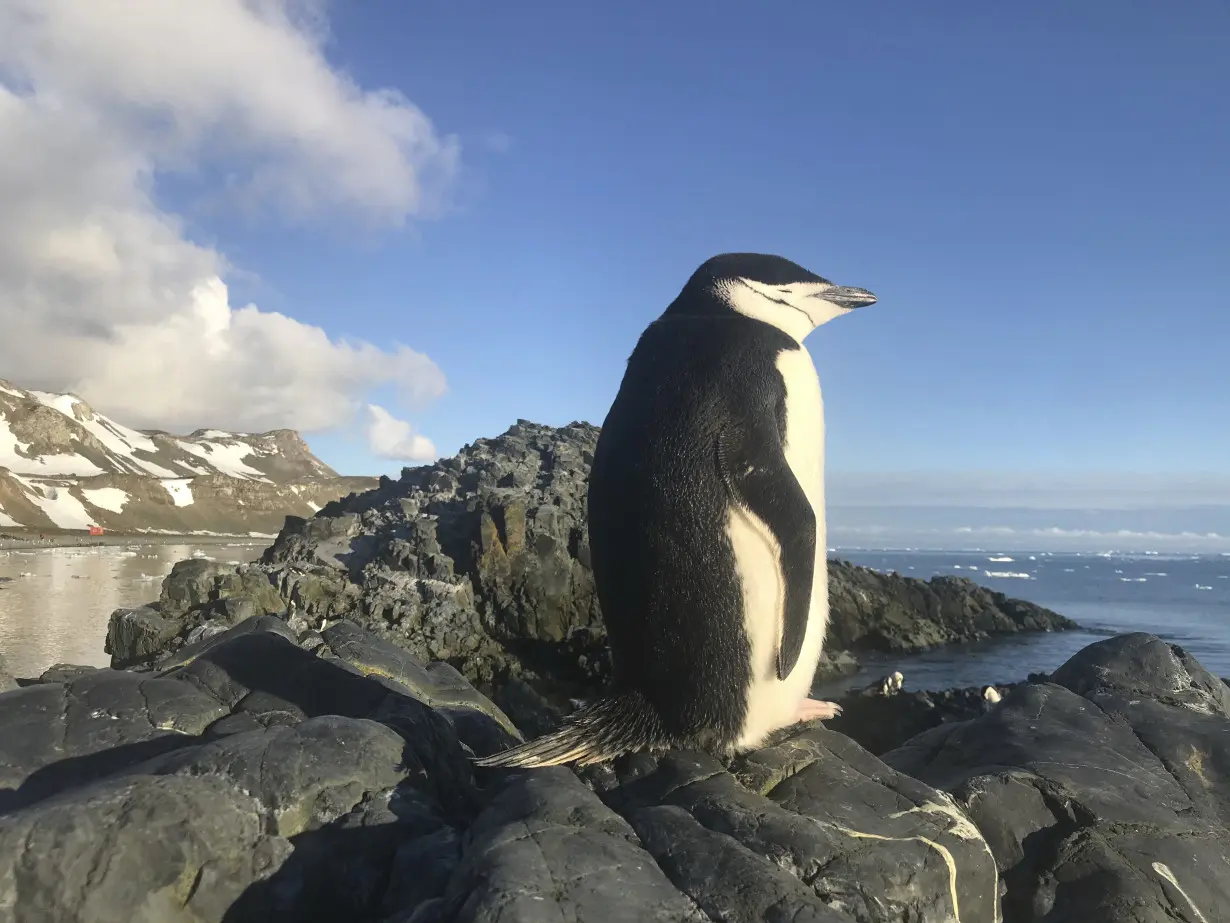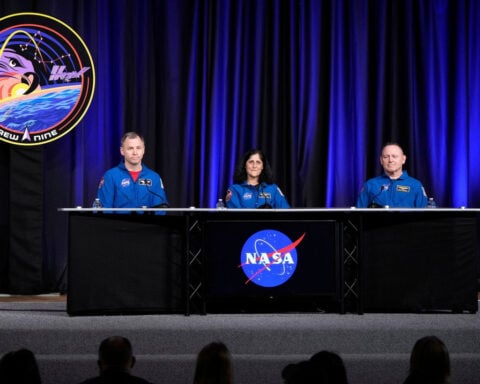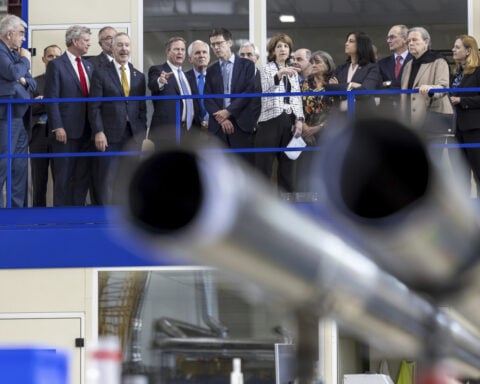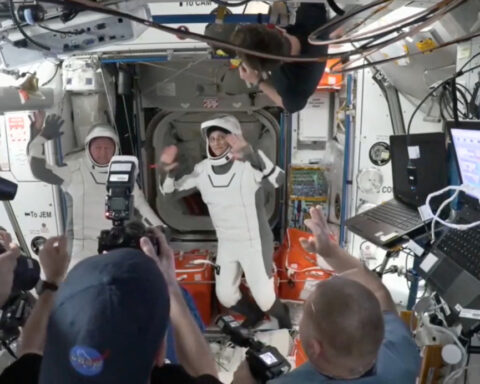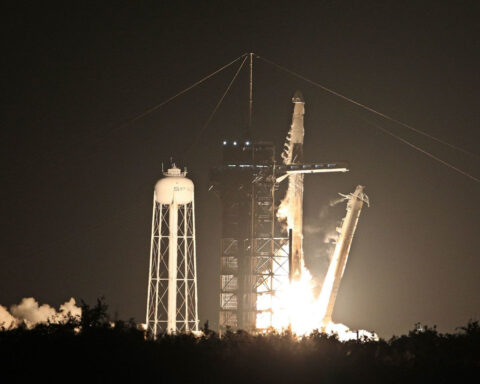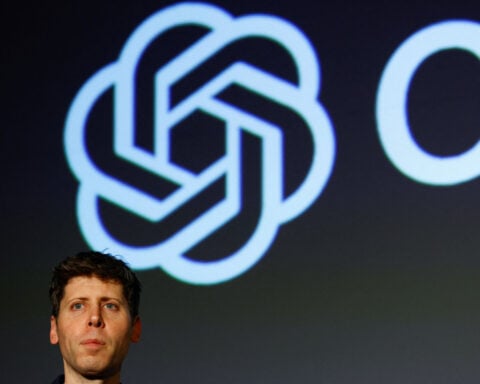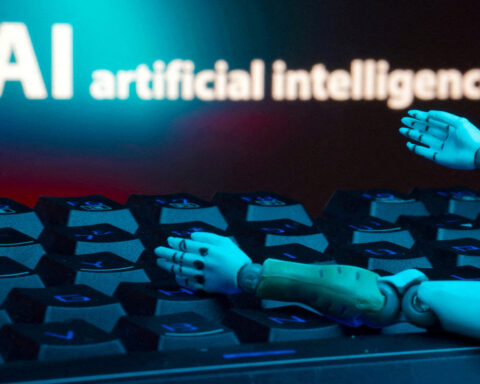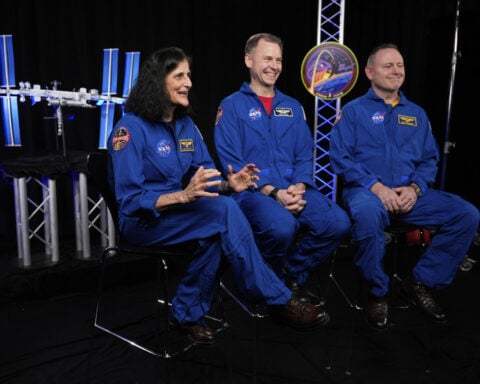WASHINGTON (AP) — It's a challenge for all new parents: Getting enough sleep while keeping a close eye on their newborns. For some penguins, it means thousands of mini-catnaps a day, researchers discovered.
Chinstrap penguins in Antarctica need to guard their eggs and chicks around-the-clock in crowded, noisy colonies. So they nod off thousands of times each day — but only for about four seconds at a time — to stay vigilant, the researchers reported Thursday in the journal Science.
These short “microsleeps,” totaling around 11 hours per day, appear to be enough to keep the parents going for weeks.
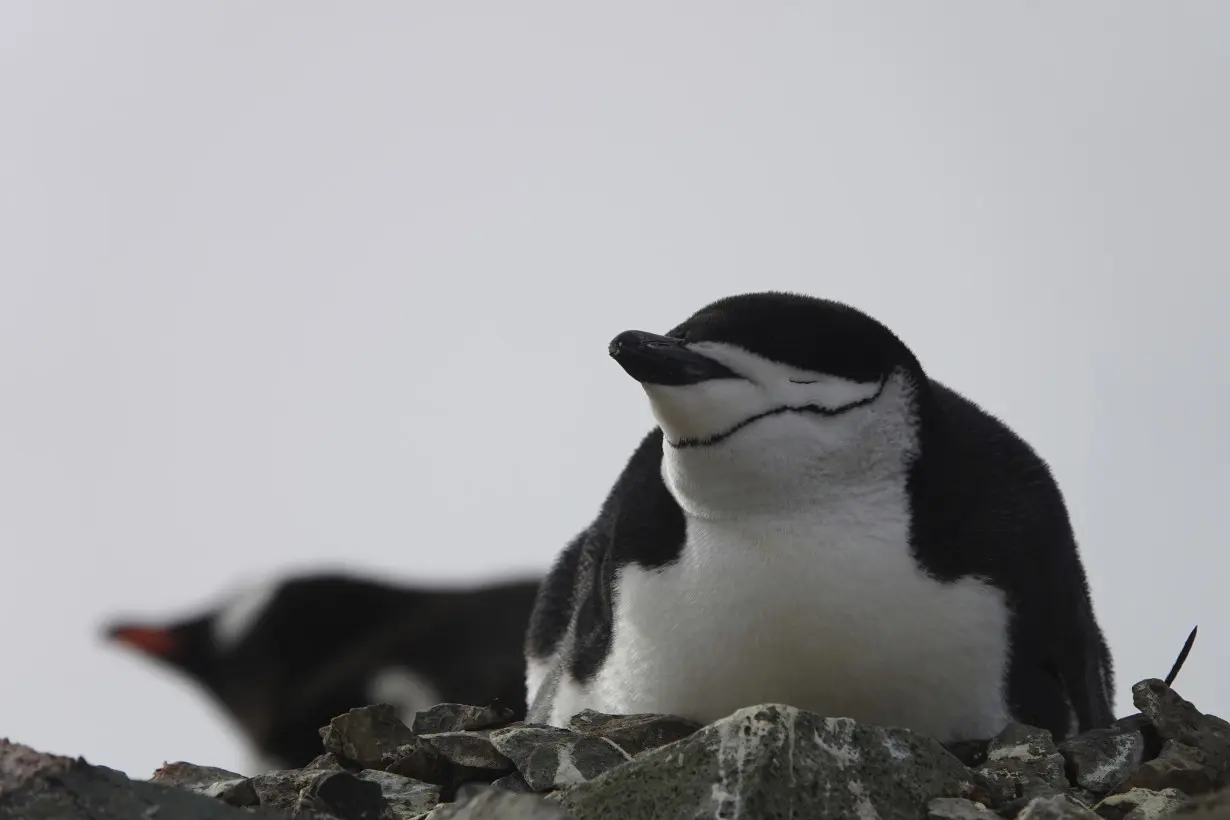
“These penguins look like drowsy drivers, blinking their eyes open and shut, and they do it 24/7 for several weeks at a time,” said Niels Rattenborg, a sleep researcher at the Max Planck Institute for Biological Intelligence in Germany and co-author of the new study.
“What’s surprising is that they’re able to function OK and successfully raise their young," he said.
Chinstrap penguins, named for the thin line of black facial feathers resembling a chinstrap, usually lay their eggs in pebble nests in November. As with many other kinds of penguins, mated pairs share parenting duties. One parent tends to the eggs and chicks alone while the other goes off fishing for family meals.
While the adults don't face many natural predators in the breeding season, large birds called brown skuas prey on eggs and small fuzzy gray chicks. Other adults may also try to steal pebbles from nests. So the devoted parents must be always on guard.
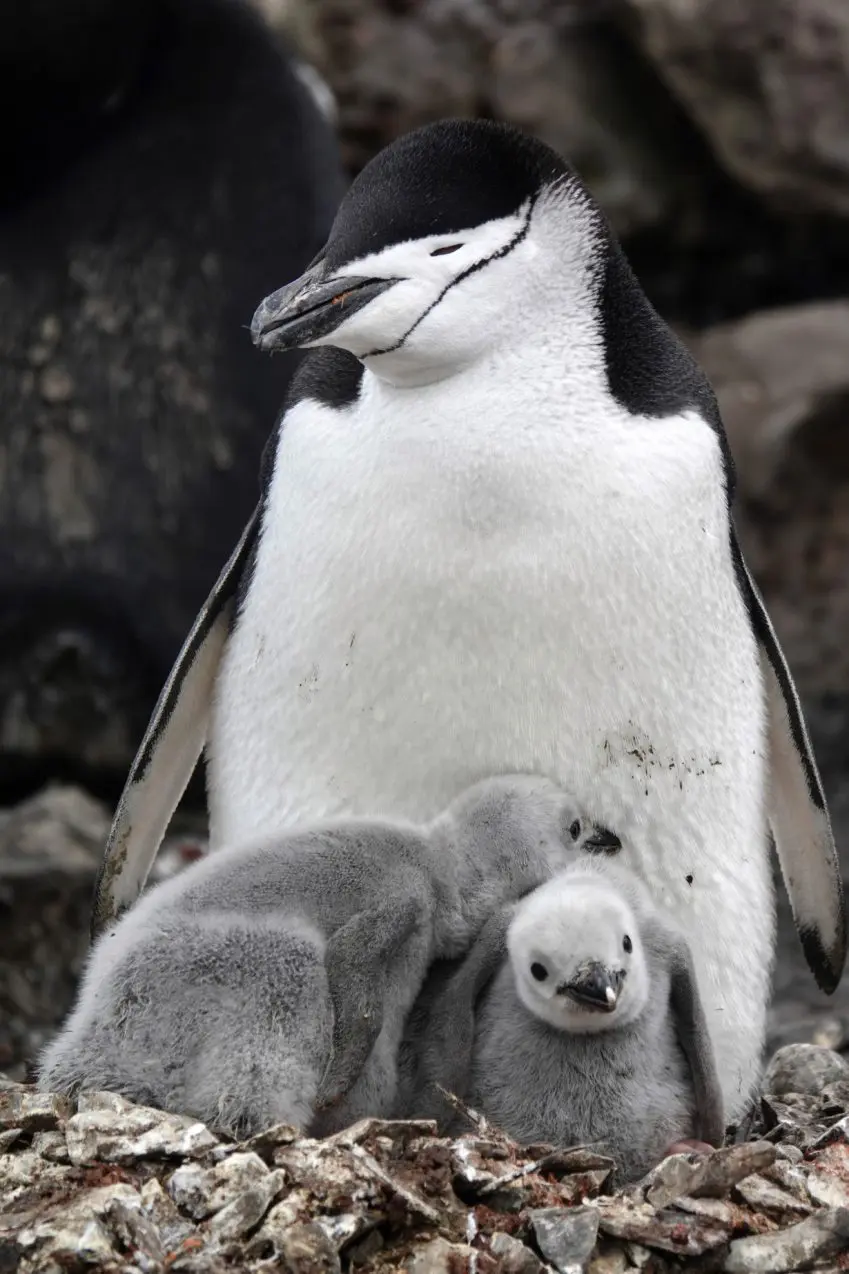
For the first time, the scientists tracked the sleeping behavior of chinstrap penguins in an Antarctic breeding colony by attaching sensors that measure brain waves. They collected data on 14 adults over 11 days on King George Island off the coast of Antarctica.
The idea for the study was hatched when Won Young Lee, a biologist at the Korean Polar Research Institute, noticed breeding penguins frequently blinking their eyes and apparently nodding off during his long days of field observations. But the team needed to record brain waves to confirm they were sleeping.
“For these penguins, microsleeps have some restorative functions — if not, they could not endure,” he said.
The researchers did not collect sleep data outside the breeding season, but they hypothesize that the penguins may sleep in longer intervals at other times of the year.
“We don’t know yet if the benefits of microsleep are the same as for long consolidated sleep,” said Paul-Antoine Libourel, a co-author and sleep researcher at the Neuroscience Research Center of Lyon in France. They also don't know if other penguin species sleep in a similar fragmented fashion.
Scientists have documented a few other animals with special sleeping adaptions. While flying, frigatebirds can sleep one half of their brain at a time, and northern elephant seals can nap for 10 or 15 minutes at a time during deep dives, for example.
But chinstrap penguin microsleeps appear to be a new extreme, researchers say.
“Penguins live in a high-stress environment. They breed in crowded colonies, and all their predators are there at the same time,” said Daniel Paranhos Zitterbart, who studies penguins at the Woods Hole Oceanographic Institution in Massachusetts and was not involved in the study.
Microsleeping is “an amazing adaptation” to enable near constant vigilance, he said.
___
The Associated Press Health and Science Department receives support from the Howard Hughes Medical Institute’s Science and Educational Media Group. The AP is solely responsible for all content.

 Trump has begun another trade war. Here's a timeline of how we got here
Trump has begun another trade war. Here's a timeline of how we got here
 Canada's leader laments lost friendship with US in town that sheltered stranded Americans after 9/11
Canada's leader laments lost friendship with US in town that sheltered stranded Americans after 9/11
 Chinese EV giant BYD's fourth-quarter profit leaps 73%
Chinese EV giant BYD's fourth-quarter profit leaps 73%
 You're an American in another land? Prepare to talk about the why and how of Trump 2.0
You're an American in another land? Prepare to talk about the why and how of Trump 2.0
 Chalk talk: Star power, top teams and No. 5 seeds headline the women's March Madness Sweet 16
Chalk talk: Star power, top teams and No. 5 seeds headline the women's March Madness Sweet 16
 Purdue returns to Sweet 16 with 76-62 win over McNeese in March Madness
Purdue returns to Sweet 16 with 76-62 win over McNeese in March Madness
